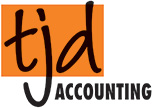End Of Year Tax Planning 2016

Tax planning for 2016. It is always best to start your tax planning at the beginning of each financial year. Finding deductions and limiting income is a minor part of tax planning. We encourage you to consider strategies that will set you up for long term tax advantages with the bonus of Asset protection.
The coming 2016 tax year:
The 2016 Federal budget, yet to be approved, may be changing as per the following:
- The tax free threshold will continue to be $18,200
- From $18,201 up to $37,000 the marginal rates will be 19%
- From 37.001 to $87,000 (previously $80,000) will be 32.5%
- From $87,001 to $180,000 37%
- From $180,001 and above 47%
Pre-pay investment loan interest
Negotiate with your lender on your investment property or share portfolio loan to pay interest on borrowings upfront, giving you a deduction this year. Generally, tax payers can claim a deduction for up to 12 months ahead. Ensure your lender allocates the payment correctly, as the deduction is only allowed against the costs of financing income producing investments, such as interest charged on borrowings.
Bring forward expenses, defer income
Endeavour to bring forward any deductions (like the interest payments mentioned above) into the 2016-2017 year. This is advantageous for those who believe they will earn less in the next year than this year.
Alternatively, if you expect to earn more next financial year, you may wish to delay any tax deductible payments until next financial year.
A simple deferral strategy that could be used earlier in the financial year to defer interest income, may be to place funds into a term deposit maturing post June 30.
Use CGT rules to your advantage
Tax planning for 2016, if you have made a capital gain from your investments this financial year, such as the sale of your investment property or long term shares, this will be added to your assessable income. Consider selling any investments on which you have made a loss before June 30. Your gains can be then offset against your losses, reducing your overall taxable income.
You should always consider all factors affecting your investments decisions, not merely consider a tax deferral strategy in isolation.
The 2016 budget has proposed the following changes …… in
Superannuation
- Transfer balance cap of $1.6 million being moved from super to a pension
- Establishment of a $500,000 lifetime non concessional contribution cap
- 1st July 2017 will see the work test for people aged 65-74 abolished
- 1st July 2017 will see that every person’s concessional contribution cap will be reduced to $25,000
Changes for the lower income worker:
- A low income superannuation tax offset will be introduced as of 1st July 2017 and will apply to those with incomes less than $37,000, which is designed to avoid paying more contribution tax than previously would have happened if members did not contribute to super.
Your next update on taxation will be “How to Prepare for a Comfortable Retirement”.
Final reminders in planning 2016 tax return
You can claim up to $300 of work related expenses without receipts, provided the claims are for outgoings related to earning assessable income.
The tax guidance provided is not exhaustive nor does it suit every tax payer, therefore we recommend scheduling a meeting with one of our trusted accountants to discuss possible options available to you.
TJD Accounting Services Pty Ltd
‘Where clients come first’
